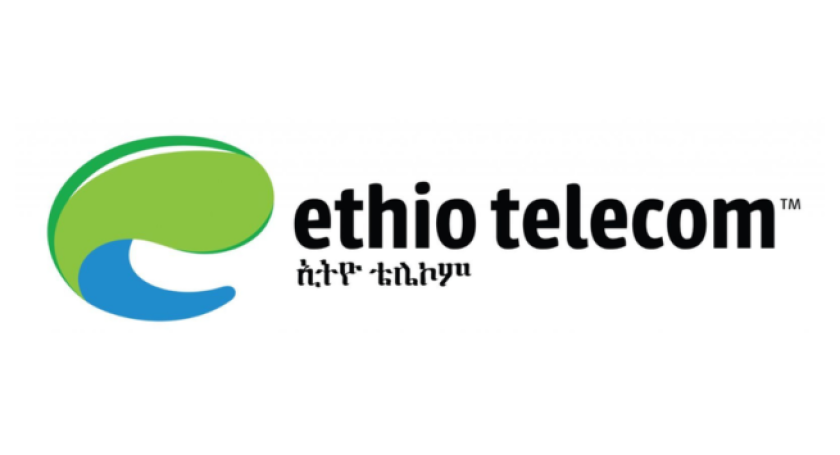On Wednesday, Ethio Telecom and the Ministry of Transportation and Logistics introduced three digital solutions to modernise the transportation industry.
The three digital solutions include the following: the National Traffic Point-Based Penalty Management System, the Integrated Fuel Supply System Solution (which enables all payment platforms for fuel payment), and the Cross-Country Public Transport Service System.
These systems will be crucial for the fuel supply chain, cross-country public transportation, and the modernisation of traffic penalty management’s antiquated operational processes.
Ethio Telecom stated, “Our company is diligently working to implement digital innovations. Therefore, these solutions, presented in collaboration with the Ministry of Transport and Logistics, demonstrate Ethio telecom’s commitment to transforming Ethiopia’s transport landscape with modern technology and digital solutions.”
Customers will be able to use various financial institution options, clear procedures will be established, user inconvenience will be eliminated, and timely access to accurate data for fuel supply and transactions will be made possible. The three digital solutions that were revealed are explained below:
Cross-Country Public Transport Service System
This digital solution is a complete system made to make it simple to manage and expedite the procedures for using public transport services across the country. From licensing and regulatory compliance to ticketing and digital payments, it offers a single solution for the Ministry of Transport and Logistics and for nationwide implementation.
This will play a major role in reducing the time and delays caused by travellers purchasing tickets manually, expediting the licensing process, reducing the amount of time wasted on incomplete or incorrect documentation, guaranteeing sales and revenue transparency, preventing theft and fraud by travelers or transport service providers, modernising data management to address issues, and providing accurate, real-time information on bus movements, ticket sales, passenger numbers, and service coverage.
By digitising the current manual or paper-based licensing and registration systems, driver and vehicle registration and dispatch, manual ticket printing and payment processes, and transport dispatch systems, the digital solution greatly lowers administrative costs. Route planning, scheduling, and terminal (bus station) management will all be modernised, and stakeholders will have access to real-time monitoring, operational control, and reporting.
Additionally, it enables users to buy cross-country bus tickets on their mobile devices at any time, from any location, in a variety of local languages, including English, with a variety of modes of payment, including telebirr, and to conveniently reserve and confirm their seats.
Integrated Fuel Supply System Solution
This solution enables all payment platforms for fuel payment. This fuel supply system solution is a nationally integrated system that links the central fuel management system with all financial institutions, including banks, wallets, and microfinance organisations. It is a solution that makes it possible for all petrol stations nationwide to collaborate and carry out fuel transactions efficiently using a single process.
The Ministry of Transport and Logistics and the Petroleum and Energy Authority will be able to get real-time reports, improve market control, keep a close eye on national fuel reserves, sales, and distribution to stop the illegal fuel trade, guarantee accountability and transparency, and make data-driven decisions.
Fuel stations will be able to provide better and more effective service delivery and accept fuel payments from all banks and wallets, including telebirr.
Additionally, it enables drivers to use Telebirr and other payment methods to refuel at any petrol station in Ethiopia. It allows financial institutions to save money and time, gain quick access to the fuel market, and guarantee competitive service delivery.
National Traffic Point-Based Penalty Management System
This system aids in ensuring that traffic laws are correctly applied across the country. It creates a standardised national traffic management system, centrally records data, and establishes digitally assisted traffic penalty management.
In particular, it is crucial to the complete digitisation of the country’s current manual traffic penalty system. Additionally, by supporting digital records, a centralised traffic penalty system, traffic penalty point management, and convenient penalty payment, it will overcome the challenges of information scarcity for policymaking and address data limitations and inefficient resource use through data analysis.
Additionally, it makes it possible to monitor traffic law infractions, register all driver information nationwide, and achieve a healthy flow of traffic. By improving the management and enforcement of traffic penalties and empowering regional transport bureaus to modernise their operations with the help of Telecloud without needing additional funding or expenses, the solution will have a major positive impact on the expansion of the transportation and traffic sector.
By implementing this digital solution, traffic/transport bureaus will be able to improve and enforce traffic laws based on data, increase operational efficiency and transparency, and reduce operational costs. By enabling simple penalty payments, drivers will save time spent obtaining services, avoid needless harassment, and be less likely to be involved in traffic accidents.
Additionally, it offers substantial advantages to federal and regional governments in terms of improving the efficacy of traffic law enforcement procedures, enabling them to employ the solution without incurring additional expenses for the development of new systems, establishing uniform and standardised traffic regulations, obtaining real-time reports for decision-making, and guaranteeing increased accountability and transparency. The service is available through SMS, mobile applications, and websites.
“The development of these implemented solutions by private software development institutions, along with the easy integration of various financial institution options with our company’s systems and telebirr via API, has enhanced interoperability, fostered job creation, and strengthened an inclusive digital ecosystem,” the company emphasised.
















